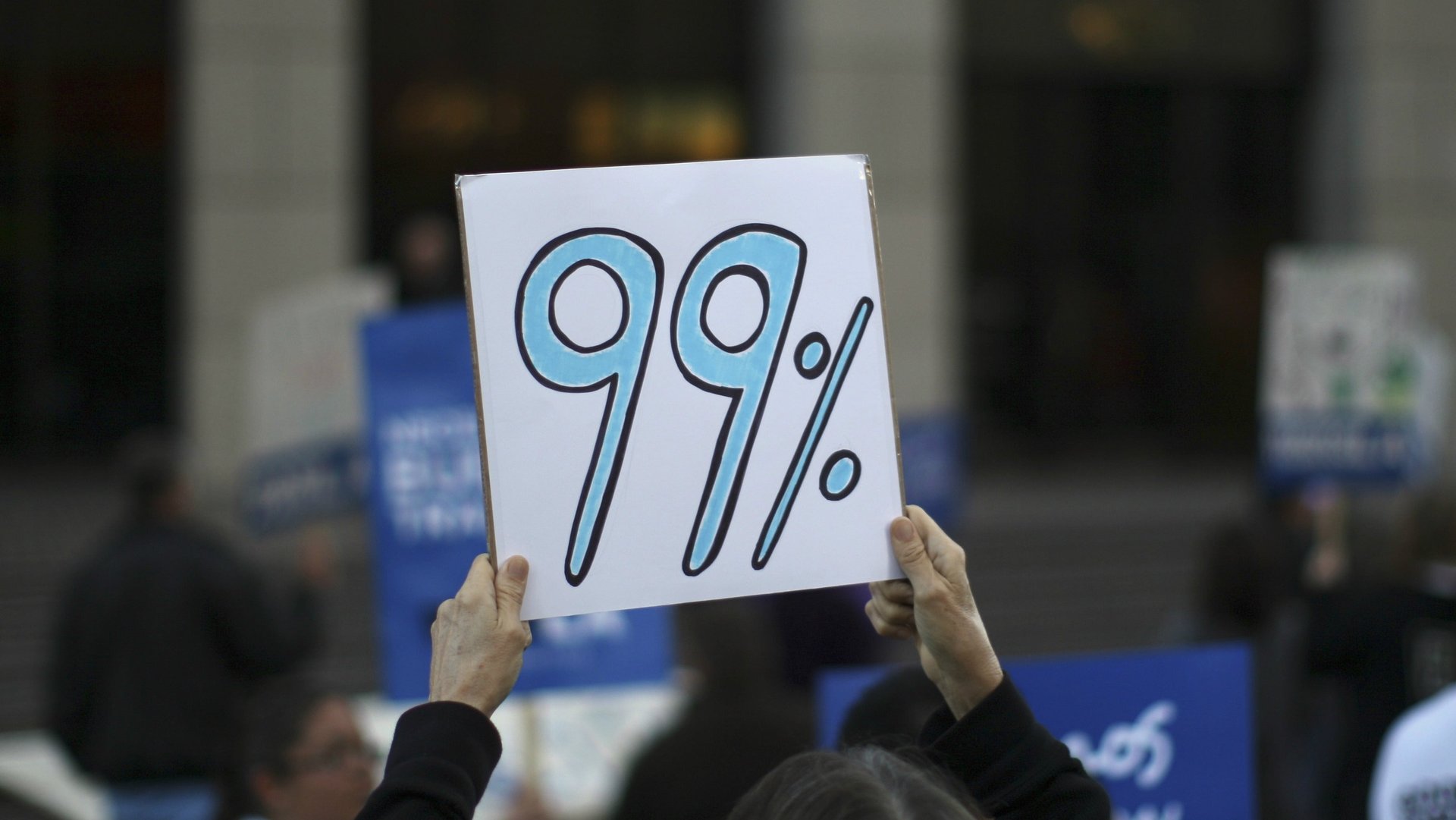Americans may be worried about inequality, but they don’t think the government should do anything about it
Politicians may be concerned about economic inequality, but that doesn’t mean they should talk about it so much.


Politicians may be concerned about economic inequality, but that doesn’t mean they should talk about it so much.
In the US, inequality has been steadily rising. Since the 1970s, the share of income going to the top one percent of earners doubled, while the share of wealth held by the one percenters grew by a third. And yet, Americans’ level of anxiety about inequality does not appear to lead to support for increased government action.
In a recent paper (paywall), Brandeis University political scientist Graham Wright examined the relationship between the public’s level of concern about inequality and support for government intervention to do something about it. Using survey data going back to 1966, Wright found that when concern for inequality rises, support for redistributive policies do not follow suit.
Although Wright used more complicated analytical techniques to establish this conclusion, the point is essentially made by the chart below—spikes in concern about inequality are not generally accompanied by spikes in support for intervention.
In fact, Wright’s research found that, if anything, people are less supportive of government intervention when concern about inequality rises—perhaps because many people believe the government is responsible for the conditions that led to greater inequity in the first place.
Wright is now dubious of the tactics employed by the Occupy Wall Street movement and politicians like Bernie Sanders. “My research suggests that just going around telling everyone ‘inequality is a problem!’ may not, in itself, do much to actually help reduce inequality,” he wrote on his blog. Instead, Wright thinks that emphasizing the value of specific policy interventions can probably achieve more than repeatedly highlighting a fact that most Americans are now all too aware of.